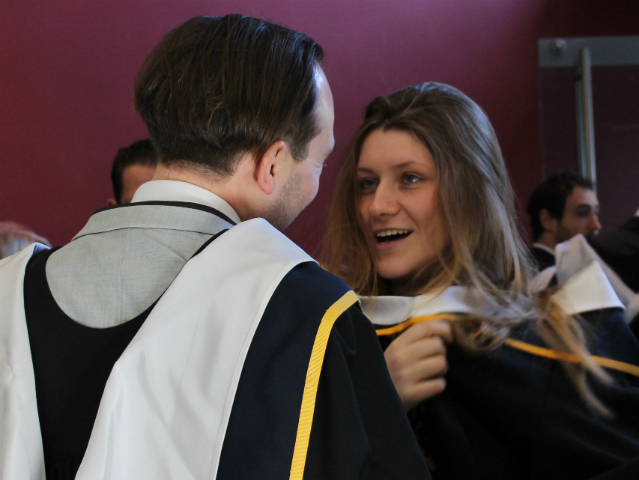
[dropcap]G[/dropcap]raduates from Trinity College are the highest earners of any third level institution, making an average of €744 euro a week four years after graduation, with DCU a close second at €725 a week.
These equate to €39,432 and €38,425 per year respectively.
“An Analysis of Graduate Earnings across Higher Education Institutions” from the Higher Education Authority (HEA) found that teaching colleges, as well as Dublin universities, had the highest salaries for graduates in their first years in the workforce.
University College Dublin was ranked third after its neighbours at €720 per week (€38,160).
Data collected by the HEA found a gap of €257 euro a week between the top and bottom performing third level institutions using wage statistics from people graduating with undergrad degrees between 2010 and 2017.
While teaching college such as DCU’s St. Patricks’ College, St. Angela’s College in Sligo and Limerick’s Mary Immaculate ranked highly, Institutes of Technology fared the worst.
Letterkenny IT was at the bottom of the list with an average of €495 a week for graduates four years after finishing their degrees.
DCU Student Union Vice President for Academic Affairs, Kate Goodman, told The College View that she was incredibly proud of DCU’s high ranking.
“It is great to see the high performance of DCU Graduates entering the working world after their time here. Of course, as a student movement, we’d like to see all students across the island succeed in tandem with one another,” she said.
Eight years after graduation, UCD alumni were found to be earning the most at €51,000 per year, 40% more than Letterkenny IT grads from the same year.
A significant earnings gap remained even when data was adjusted to show only graduates who studied a similar subject and received the same grade but attended different higher level institutions.
Using this like-for-like comparison, the earnings gap after four years dropped to €154 a week and graduates from TCD, UCD and DCU still earned more than average, while Institutes of Technology remained below average.
“It’s difficult to pinpoint one factor for the discrepancies we see across institutions. What we do know is that DCU has long-standing ties with industry, with courses and modules being designed with their input. This collaboration has been further fostered through our INTRA programme. We do believe these factors play a big part in our high ranking,” Goodman said.
The study’s authors say the findings indicate that a graduate’s earnings are also impacted by the “institutional prestige” of where they studied as well as their Leaving Cert points and type of second-level school they attended.
Technological Higher Education Association, which represents institutes of technology, said graduates from its colleges performed well on a like-for-like basis despite the overall lower Leaving Cert points that their students have and the socio-economic difficulties they face.
“It is clear that the technological higher education sector is the driver of access to education for the most socially and economically challenged cohorts of students throughout Ireland and they should be recognised and financially supported in this,” it said.
Jamie Mc Carron
Image Credit: Shauna Bowers



